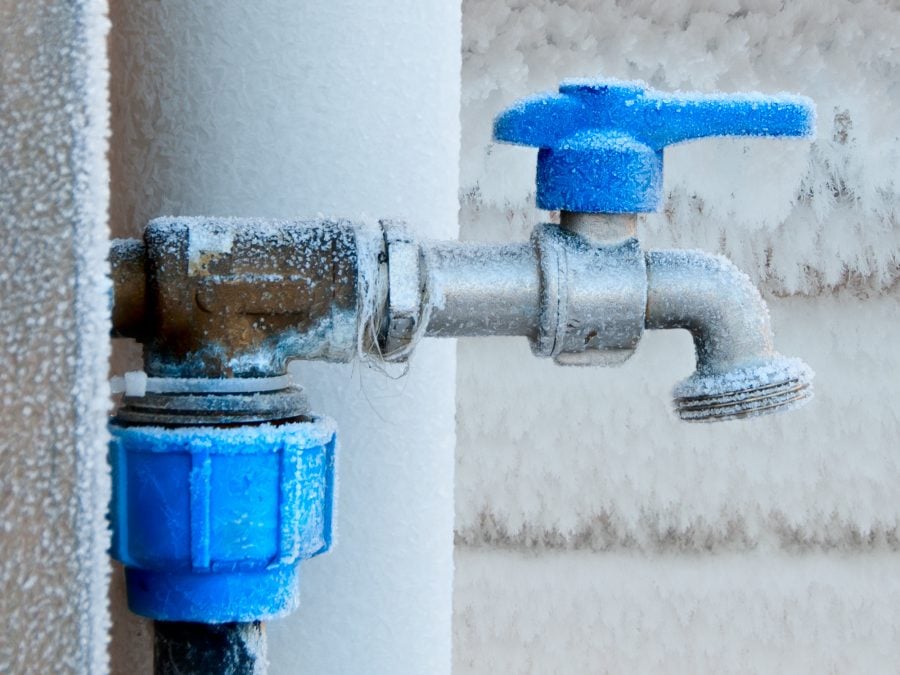Important Tips to Prevent Frozen Pipes in Winter
Important Tips to Prevent Frozen Pipes in Winter
Blog Article
This post listed below pertaining to How to Prevent Your Pipes From Freezing is definitely captivating. Don't miss out on it.

Winter can wreak havoc on your plumbing, especially by freezing pipelines. Right here's just how to stop it from taking place and what to do if it does.
Intro
As temperatures decrease, the threat of frozen pipes rises, possibly resulting in costly repair services and water damages. Understanding exactly how to stop frozen pipelines is critical for home owners in cool environments.
Avoidance Tips
Protecting susceptible pipes
Wrap pipes in insulation sleeves or use warmth tape to secure them from freezing temperatures. Concentrate on pipes in unheated or exterior locations of the home.
Heating strategies
Keep indoor areas properly warmed, particularly locations with plumbing. Open up cupboard doors to permit warm air to flow around pipes under sinks.
Exactly how to identify frozen pipelines
Look for lowered water flow from taps, uncommon odors or noises from pipelines, and noticeable frost on exposed pipes.
Long-Term Solutions
Structural changes
Consider rerouting pipes away from exterior walls or unheated areas. Include additional insulation to attic rooms, cellars, and crawl spaces.
Updating insulation
Buy high-grade insulation for pipes, attic rooms, and wall surfaces. Proper insulation assists maintain regular temperatures and decreases the danger of frozen pipes.
Protecting Outdoor Plumbing
Garden hose pipes and outdoor faucets
Disconnect and drain yard pipes before winter. Mount frost-proof spigots or cover outdoor taps with insulated caps.
Understanding Icy Pipes
What creates pipes to ice up?
Pipes ice up when exposed to temperature levels below 32 ° F (0 ° C) for expanded periods. As water inside the pipelines freezes, it broadens, taxing the pipe wall surfaces and possibly causing them to rupture.
Threats and damages
Frozen pipelines can bring about supply of water disturbances, home damages, and pricey repairs. Burst pipes can flood homes and trigger substantial architectural damages.
Indicators of Frozen Piping
Recognizing icy pipelines early can avoid them from rupturing.
What to Do If Your Pipes Freeze
Immediate actions to take
If you think frozen pipelines, maintain faucets open to alleviate pressure as the ice thaws. Utilize a hairdryer or towels soaked in hot water to thaw pipelines slowly.
Conclusion
Protecting against icy pipes needs aggressive procedures and quick responses. By recognizing the causes, signs, and preventive measures, homeowners can protect their plumbing during cold weather.
5 Ways to Prevent Frozen Pipes
Drain Outdoor Faucets and Disconnect Hoses
First, close the shut-off valve that controls the flow of water in the pipe to your outdoor faucet. Then, head outside to disconnect and drain your hose and open the outdoor faucet to allow the water to completely drain out of the line. Turn off the faucet when done. Finally, head back to the shut-off valve and drain the remaining water inside the pipe into a bucket or container. Additionally, if you have a home irrigation system, you should consider hiring an expert to clear the system of water each year.
Insulate Pipes
One of the best and most cost-effective methods for preventing frozen water pipes is to wrap your pipes with insulation. This is especially important for areas in your home that aren’t exposed to heat, such as an attic. We suggest using foam sleeves, which can typically be found at your local hardware store.
Keep Heat Running at 65
Your pipes are located inside your walls, and the temperature there is much colder than the rest of the house. To prevent your pipes from freezing, The Insurance Information Institute suggests that you keep your home heated to at least 65 degrees, even when traveling. You may want to invest in smart devices that can keep an eye on the temperature in your home while you’re away.
Leave Water Dripping
Moving water — even a small trickle — can prevent ice from forming inside your pipes. When freezing temps are imminent, start a drip of water from all faucets that serve exposed pipes. Leaving a few faucets running will also help relieve pressure inside the pipes and help prevent a rupture if the water inside freezes.
Open Cupboard Doors
Warm your kitchen and bathroom pipes by opening cupboards and vanities. You should also leave your interior doors ajar to help warm air circulate evenly throughout your home.

We are very involved in Prevent Frozen Pipes and I'm hoping you enjoyed reading the entry. Sharing is good. Helping people is fun. Thanks a bunch for being here. Return soon.
View Website Report this page